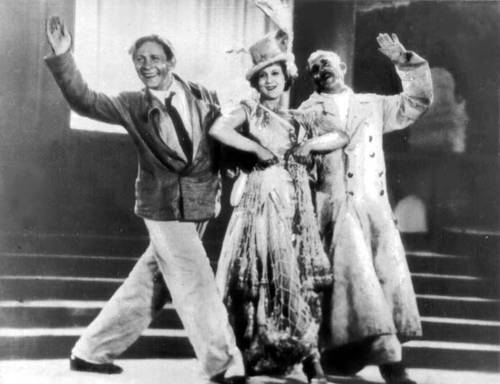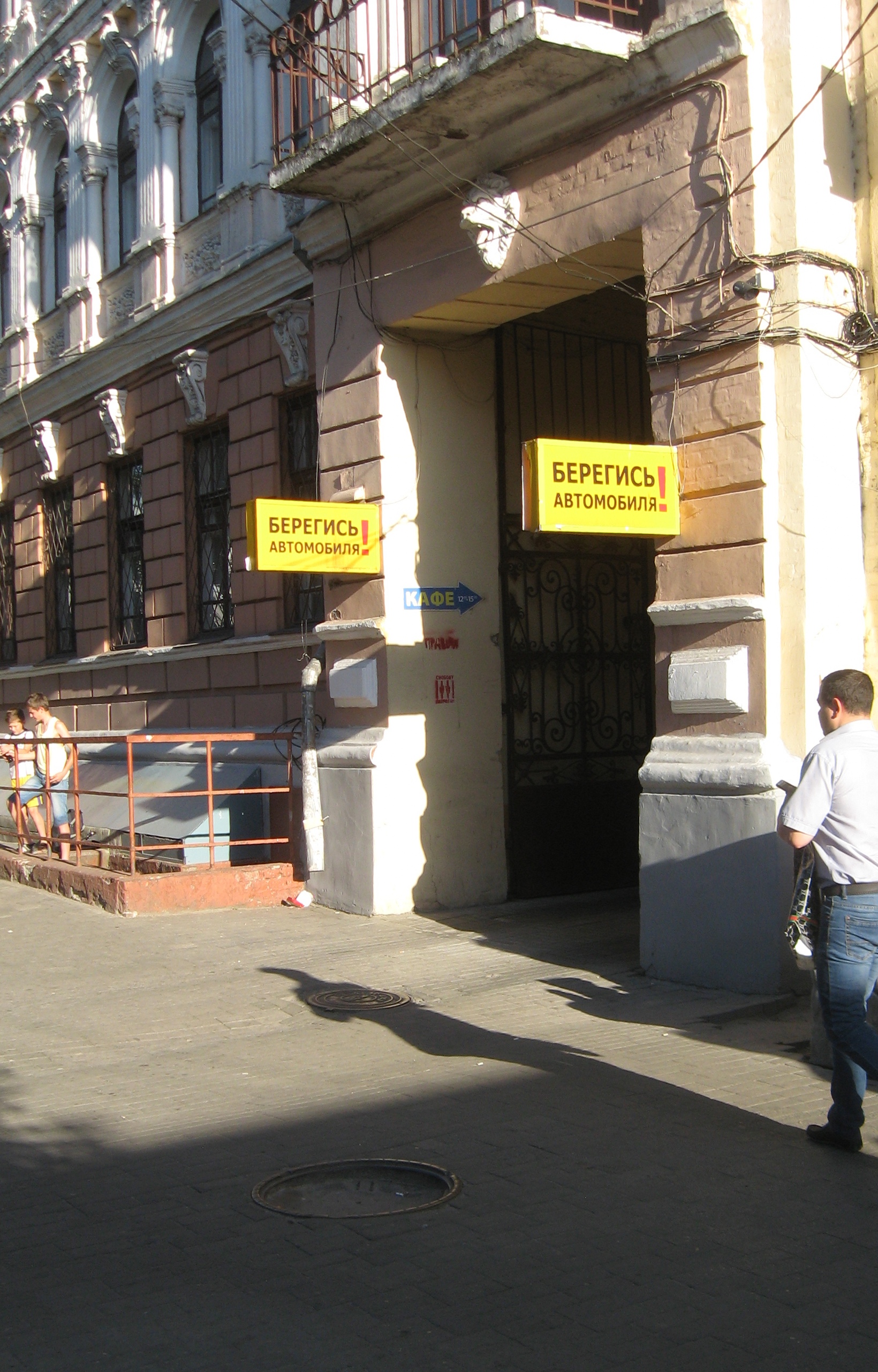|
Alla Abdalova
Albina Aleksandrovna Abdalova (russian: Алла Александровна Абдалова; born 19 June 1941) is a Soviet people, Soviet singer and stage actress. Biography Abdalova was born on 19 June 1941 in the Soviet Union. She graduated from Russian Institute of Theatre Arts, GITIS, where she was a student of Maria Maksakova Sr., Abdalova's mezzo-soprano is distinguished by a low, warm, rich timbre. After an unsuccessful attempt to enter the Bolshoi Theatre (other), Bolshoi Theater, she was accepted into the Operetta Theater. For a long time she sang in the orchestra with Leonid Utesov and worked in the Moscow Concert. Personal life From 1966 to 1976, she was married to Lev Leshchenko. The marriage lasted 10 years, and ended in divorce, initiated by Abdalova. After the divorce from Leshchenko, she did not get remarried, and had no children. Her quality of life rapidly declined due to loneliness and bad habits. Despite this, she refused assistance from Lesh ... [...More Info...] [...Related Items...] OR: [Wikipedia] [Google] [Baidu] |
Music Of The Soviet Union
The music of the Soviet Union varied in many genres and epochs. The majority of it was considered to be part of the Russian culture, but other national cultures from the Republics of the Soviet Union made significant contributions as well. The Soviet state supported musical institutions, but also carried out content censorship. According to Lenin, "Every artist, everyone who considers himself an artist, has the right to create freely according to his ideal, independently of everything. However, we are Communists and we must not stand with folded hands and let chaos develop as it pleases. We must systemically guide this process and form its result." Classical music of the USSR Classical music of the Soviet Union developed from the music of the Russian Empire. It gradually evolved from the experiments of the revolutionary era, such as orchestras with no conductors, towards classicism favored under Joseph Stalin's office. The music patriarchs of the era were Prokofiev, Shostakovi ... [...More Info...] [...Related Items...] OR: [Wikipedia] [Google] [Baidu] |
Leonid Utesov
Leonid Osipovich Utesov, also spelled Utyosov or Utiosov, uk, link=no, Леонід Йосипович Утьосов), born Lazar (Leyzer) Iosifovich Vaysbeyn or Weissbein (, Odesa – 9 March 1982, Moscow), was a famous Soviet estrada singer, and comic actor, who became the first pop singer to be awarded the prestigious title of People's Artist of the USSR in 1965. Biography Leonid Utesov was brought up in Odesa, Russian Empire and attended the Faig School of Commerce, from which he dropped out and joined the Borodanov Circus troupe as an acrobat. He started his stage career in 1911 in Kremenchuk, then returned to Odesa, changed his artistic name to Leonid Utesov, and performed as a stand up comedian with the Rosanov troupe and with the Rishelyavsky Theatre. In 1917, he won a singing competition in Gomel, Belarus, then performed in Moscow. In the 1920s, he moved to Leningrad and set up one of the first Soviet jazz bands. In Leningrad, he began collaboration with the popular c ... [...More Info...] [...Related Items...] OR: [Wikipedia] [Google] [Baidu] |
Soviet Stage Actresses
The Soviet Union,. officially the Union of Soviet Socialist Republics. (USSR),. was a transcontinental country that spanned much of Eurasia from 1922 to 1991. A flagship communist state, it was nominally a federal union of fifteen national republics; in practice, both its government and its economy were highly centralized until its final years. It was a one-party state governed by the Communist Party of the Soviet Union, with the city of Moscow serving as its capital as well as that of its largest and most populous republic: the Russian SFSR. Other major cities included Leningrad (Russian SFSR), Kiev (Ukrainian SSR), Minsk (Byelorussian SSR), Tashkent ( Uzbek SSR), Alma-Ata ( Kazakh SSR), and Novosibirsk (Russian SFSR). It was the largest country in the world, covering over and spanning eleven time zones. The country's roots lay in the October Revolution of 1917, when the Bolsheviks, under the leadership of Vladimir Lenin, overthrew the Russian Provisional Government ... [...More Info...] [...Related Items...] OR: [Wikipedia] [Google] [Baidu] |
Russian Mezzo-sopranos
Russian(s) refers to anything related to Russia, including: *Russians (, ''russkiye''), an ethnic group of the East Slavic peoples, primarily living in Russia and neighboring countries *Rossiyane (), Russian language term for all citizens and people of Russia, regardless of ethnicity *Russophone, Russian-speaking person (, ''russkogovoryashchy'', ''russkoyazychny'') * Russian language, the most widely spoken of the Slavic languages *Russian alphabet * Russian cuisine *Russian culture *Russian studies Russian may also refer to: * Russian dressing *''The Russians'', a book by Hedrick Smith * Russian (comics), fictional Marvel Comics supervillain from ''The Punisher'' series * Russian (solitaire), a card game * "Russians" (song), from the album ''The Dream of the Blue Turtles'' by Sting *"Russian", from the album ''Tubular Bells 2003'' by Mike Oldfield *"Russian", from the album '' '' by Caravan Palace *Nik Russian, the perpetrator of a con committed in 2002 *The South African name ... [...More Info...] [...Related Items...] OR: [Wikipedia] [Google] [Baidu] |
Living People
Related categories * :Year of birth missing (living people) / :Year of birth unknown * :Date of birth missing (living people) / :Date of birth unknown * :Place of birth missing (living people) / :Place of birth unknown * :Year of death missing / :Year of death unknown * :Date of death missing / :Date of death unknown * :Place of death missing / :Place of death unknown * :Missing middle or first names See also * :Dead people * :Template:L, which generates this category or death years, and birth year and sort keys. : {{DEFAULTSORT:Living people 21st-century people People by status ... [...More Info...] [...Related Items...] OR: [Wikipedia] [Google] [Baidu] |
1941 Births
Events Below, the events of World War II have the "WWII" prefix. January * January–August – 10,072 men, women and children with mental and physical disabilities are asphyxiated with carbon monoxide in a gas chamber, at Hadamar Euthanasia Centre in Germany, in the first phase of mass killings under the Action T4 program here. * January 1 – Thailand's Prime Minister Plaek Phibunsongkhram decrees January 1 as the official start of the Thai solar calendar new year (thus the previous year that began April 1 had only 9 months). * January 3 – A decree (''Normalschrifterlass'') promulgated in Germany by Martin Bormann, on behalf of Adolf Hitler, requires replacement of blackletter typefaces by Antiqua (typeface class), Antiqua. * January 4 – The short subject ''Elmer's Pet Rabbit'' is released, marking the second appearance of Bugs Bunny, and also the first to have his name on a title card. * January 5 – WWII: Battle of Bardia in Libya: Australian an ... [...More Info...] [...Related Items...] OR: [Wikipedia] [Google] [Baidu] |
Beware Of The Car
''Beware of the Car'' (russian: Береги́сь автомоби́ля, translit. ''Beregis Avtomobilya'', English titles ''Uncommon Thief'', or ''Watch out for the Automobile'') is a 1966 Soviet crime comedy drama film directed by Eldar Ryazanov, based on a screenplay by Emil Braginsky and produced by Mosfilm. It stars Innokenty Smoktunovsky, Oleg Yefremov, Andrei Mironov and Anatoli Papanov, among others. ''Beware of the Car'' is recognized as a satire of the film noir genre, highly unusual in Brezhnev- -era society. It is credited for launching Soviet political satire as a film genre, typified by Ryazanov's work. Plot Yuri Detochkin (Smoktunovsky) is a humble Soviet insurance agent who steals fancy cars from corrupt Soviet officials and scammers, disappointed by the militsiya being unable to fight the crooks. One of Detochkin's victims is Dima Semitsvetov (Mironov), a retail embezzler mocked but tolerated by his colorful father-in-law Semyon Vasilyevich (Papanov), a ... [...More Info...] [...Related Items...] OR: [Wikipedia] [Google] [Baidu] |
Bolshoi Theatre (other) , St.Petersburg
*
*
{{disambiguation ...
Bolshoi (, meaning ''big'', ''large'', ''great'', ''grand'', etc.) may refer to: *Bolshoi Theatre, a ballet and opera theatre in Moscow, Russia ** Bolshoi Ballet, a ballet company at the Bolshoi Theatre *Bolshoi Theatre, Saint Petersburg, a ballet and opera theatre in St. Petersburg, Russia *The Bolshoi, an English post-punk band * 26793 Bolshoi, a main-belt asteroid *Bolshoi Cosmological Simulation, a NASA simulation of the universe *Bolshoi, a bell in Danilov Monastery, Moscow *Command Bolshoi, Japanese professional wrestler See also *Alisher Navoi State Academic Bolshoi Theatre, Uzbekistan *Bolshoi Drama Theatre Tovstonogov Bolshoi Drama Theater (russian: Большой драматический театр имени Г. А. Товстоногова; literally ''Tovstonogov Great Drama Theater''), formerly known as Gorky Bolshoi Drama Theater (russian: ... [...More Info...] [...Related Items...] OR: [Wikipedia] [Google] [Baidu] |
Pop Music
Pop music is a genre of popular music that originated in its modern form during the mid-1950s in the United States and the United Kingdom. The terms ''popular music'' and ''pop music'' are often used interchangeably, although the former describes all music that is popular and includes many disparate styles. During the 1950s and 1960s, pop music encompassed rock and roll and the youth-oriented styles it influenced. '' Rock'' and ''pop'' music remained roughly synonymous until the late 1960s, after which ''pop'' became associated with music that was more commercial, ephemeral, and accessible. Although much of the music that appears on record charts is considered to be pop music, the genre is distinguished from chart music. Identifying factors usually include repeated choruses and hooks, short to medium-length songs written in a basic format (often the verse-chorus structure), and rhythms or tempos that can be easily danced to. Much pop music also borrows elements from other st ... [...More Info...] [...Related Items...] OR: [Wikipedia] [Google] [Baidu] |
Timbre
In music, timbre ( ), also known as tone color or tone quality (from psychoacoustics), is the perceived sound quality of a musical note, sound or tone. Timbre distinguishes different types of sound production, such as choir voices and musical instruments. It also enables listeners to distinguish different instruments in the same category (e.g., an oboe and a clarinet, both woodwind instruments). In simple terms, timbre is what makes a particular musical instrument or human voice have a different sound from another, even when they play or sing the same note. For instance, it is the difference in sound between a guitar and a piano playing the same note at the same volume. Both instruments can sound equally tuned in relation to each other as they play the same note, and while playing at the same amplitude level each instrument will still sound distinctively with its own unique tone color. Experienced musicians are able to distinguish between different instruments of the same ... [...More Info...] [...Related Items...] OR: [Wikipedia] [Google] [Baidu] |





.jpg)